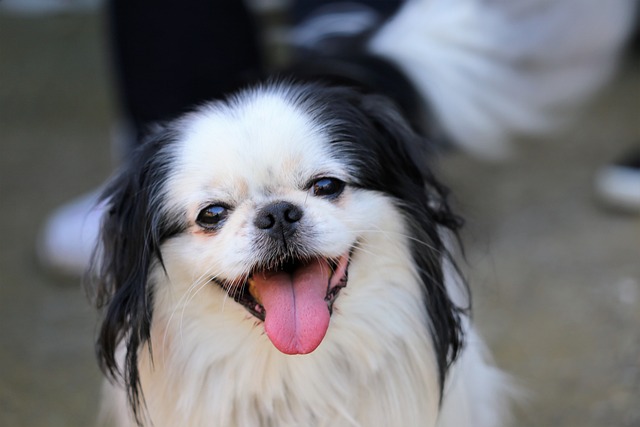


The Japanese Chin is a small, elegant toy dog known for its beautiful coat, charming personality, and regal bearing. Often considered a companion dog, this breed is affectionate, intelligent, and tends to form strong bonds with its owners. Despite its small size, the Japanese Chin carries itself with dignity and confidence. It is well-suited to apartment living and is known for being a low-maintenance dog that requires only moderate exercise and grooming.
The Japanese Chin has a long history that dates back over a thousand years, originating in China, where it was favored by nobility and royalty. The breed was often kept as a lap dog and was highly prized for its beauty and companionship. The Japanese Chin was introduced to Japan, where it was further refined and became associated with Japanese royalty, symbolizing elegance and grace. Despite its name, the breed’s origins are Chinese, though it became firmly established in Japan. It was first brought to the United States in the late 19th century, where it gradually gained popularity among dog enthusiasts as a companion dog.
The Japanese Chin is a small, compact dog standing between 8 to 11 inches at the shoulder and weighing between 4 to 9 pounds. The breed has a distinctive, long, flowing coat that is silky and fine, with feathers on the tail, legs, and ears. Its head is small with a short, flat face, large dark eyes, and a characteristic "pushed-in" look. The Japanese Chin has a slightly rounded skull, and its long, plume-like tail curls over its back. The coat colors typically include black, white, or red, with the breed often exhibiting beautiful combinations of these colors. The breed’s movement is graceful and fluid, giving it an elegant appearance.
The Japanese Chin is known for its affectionate and playful nature. It is a loyal companion and tends to form strong bonds with its family. This breed is generally calm, gentle, and good with children, though it can be somewhat reserved or independent at times. While the Japanese Chin enjoys companionship, it is not overly needy or demanding of attention. It has a dignified and confident demeanor, often carrying itself with a "royal" air, which makes it stand out among other toy breeds. The breed is generally friendly and can be socialized well with other dogs and pets, though it may be cautious around strangers. It does enjoy attention and can be quite entertaining with its playful antics.
The Japanese Chin is a relatively low-energy breed, making it well-suited to apartment living or homes with limited outdoor space. While it enjoys playtime and short walks, it does not require intense physical exercise. Regular walks and indoor playtime are usually sufficient to keep it happy and healthy. Because of its small size, the Japanese Chin can easily adapt to an indoor lifestyle, and it tends to enjoy lounging and being close to its owners. However, like all dogs, the Japanese Chin benefits from mental stimulation and interactive play, which helps keep it engaged and prevents boredom.
The Japanese Chin is intelligent and generally easy to train, though it can be a bit independent and sometimes stubborn. Positive reinforcement, such as treats and praise, works best with this breed. Early training and socialization are important to help the dog become well-behaved and confident in different environments. While the Japanese Chin is friendly with family members and familiar people, it can sometimes be cautious around strangers, making early exposure to various people and situations essential. Socializing with other dogs and animals from a young age will help the breed develop good behavior and prevent timidness or overly protective tendencies.
The Japanese Chin is generally a healthy breed, but like all dogs, it can be prone to certain health conditions. These include dental problems, patellar luxation (dislocation of the kneecap), and certain heart conditions. It is important to provide regular veterinary care, including dental cleanings, as small dog breeds are often more susceptible to dental issues. Grooming the Japanese Chin involves regular brushing to maintain its beautiful coat and prevent tangles. Bathing should be done occasionally, and attention should be given to cleaning the dog’s ears and eyes. Additionally, the breed’s eyes should be checked for any signs of irritation, as they can be prone to eye problems due to their prominent eye shape.
The average lifespan of the Japanese Chin is between 12 and 14 years. With proper care, including regular veterinary checkups, a balanced diet, and appropriate exercise, some dogs may live even longer. The breed's relatively small size and general good health contribute to its longevity, but it is still important to monitor for common health concerns and ensure the dog maintains a healthy weight.
© copyright Dog Compendium 2024 - 2026